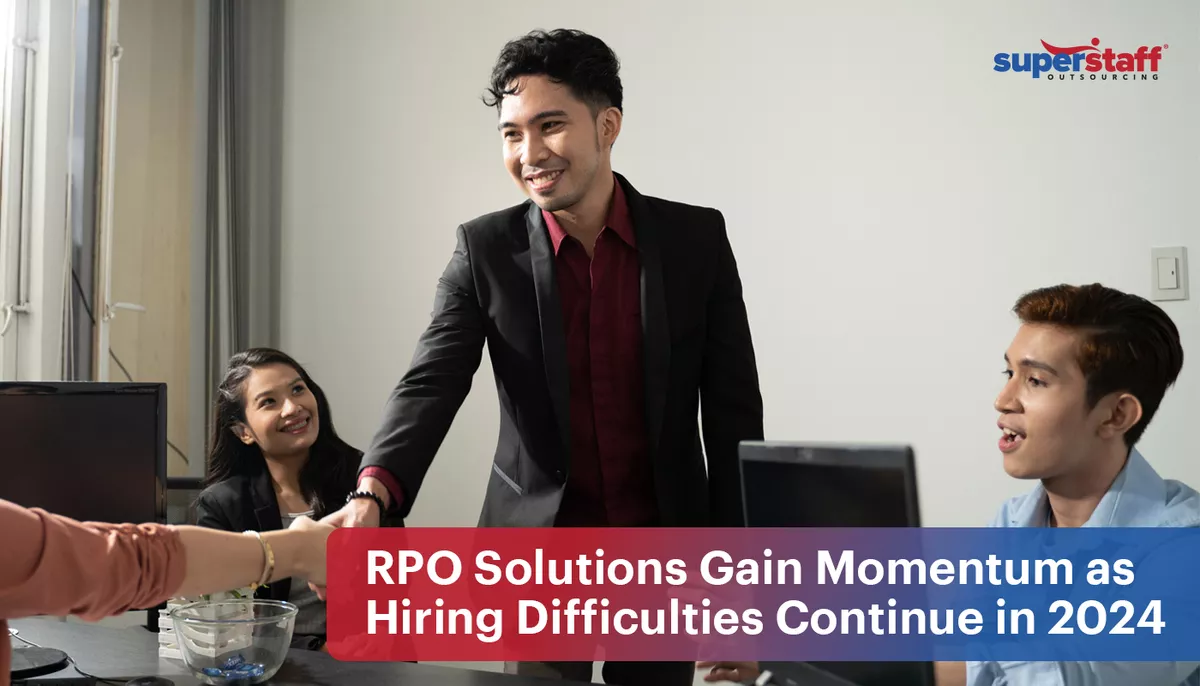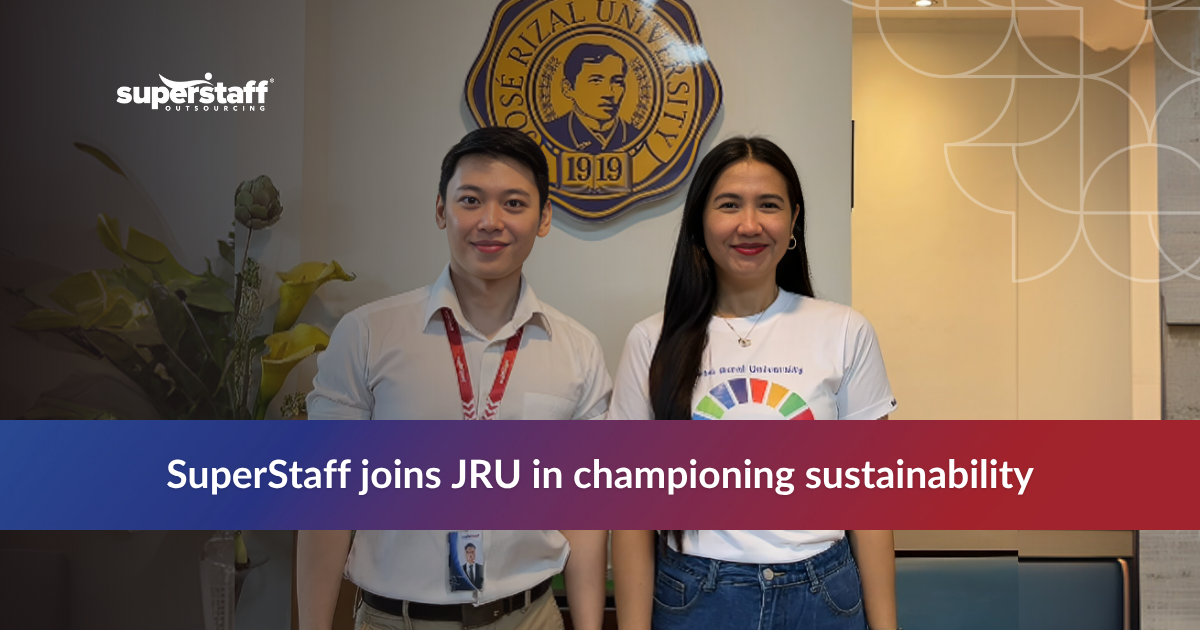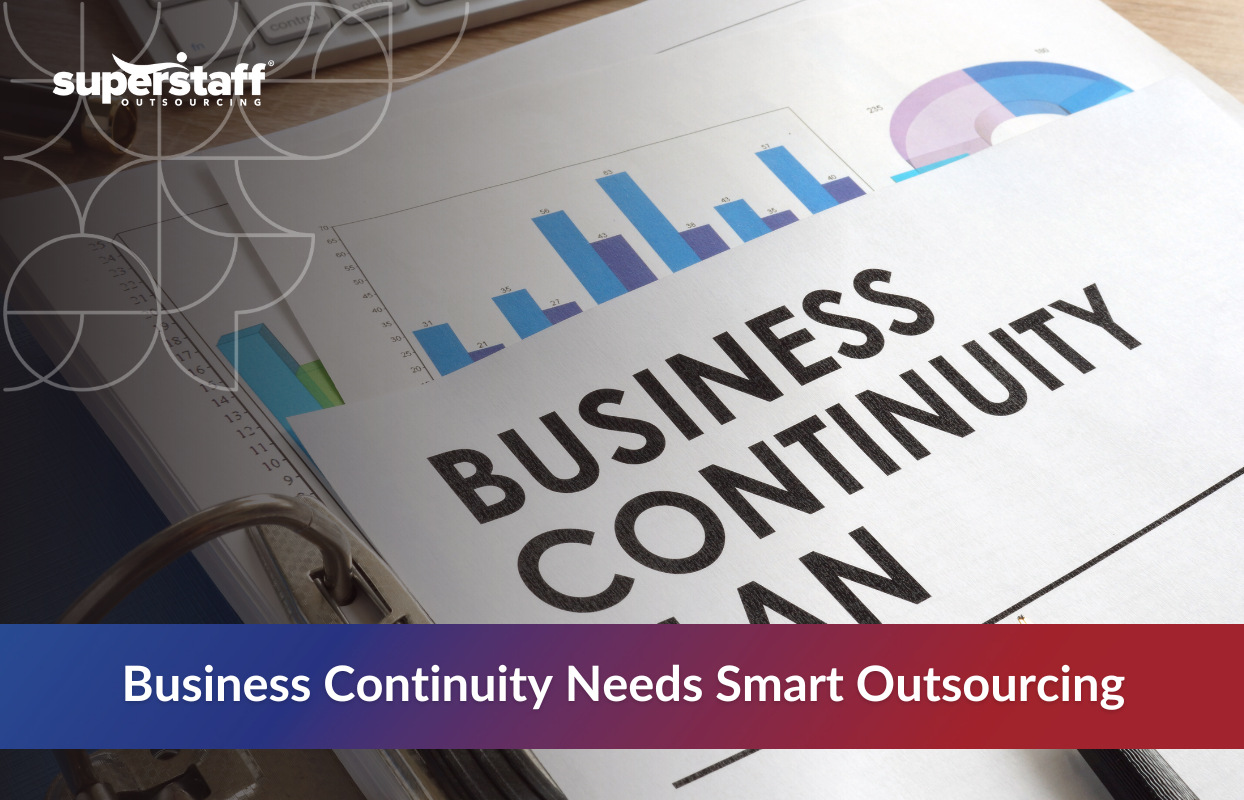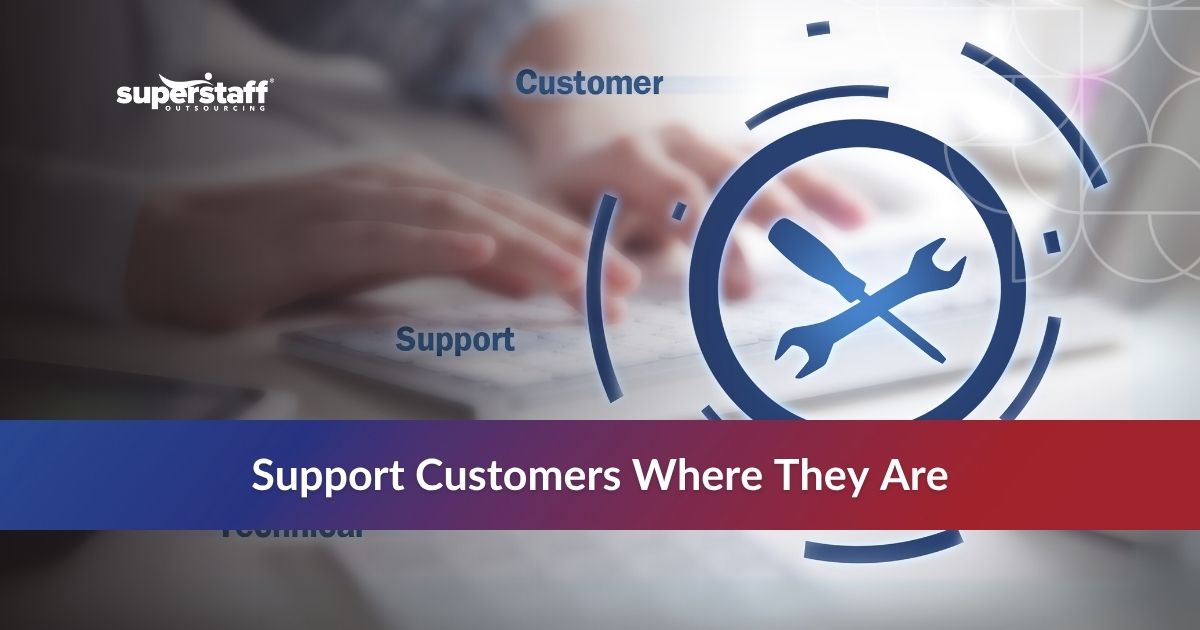
Recruitment is witnessing a seismic shift in an era of rapid advancements and shifting workforce landscapes. As businesses grapple with the complexities of finding the right talent amid mounting hiring challenges, the evolution of Recruitment Process Outsourcing (RPO) has emerged as a response to and a catalyst for the changing face of talent acquisition.
The interplay between the challenges of hiring in a competitive market and the rise of RPO is undeniable. In the intricate talent acquisition landscape, the strategic adoption of outsourced recruitment solutions is a beacon of efficiency and innovation. Embracing these insights and trends paves the way for companies to survive and thrive in an ever-evolving workforce ecosystem.
Thirteen Most Commonly Asked Questions About Recruitment Process Outsourcing
As businesses navigate the intricate talent acquisition landscape, Recruitment Process Outsourcing (RPO) has emerged as a strategic ally to streamline hiring practices. From discerning the nuanced differences between RPO and other outsourcing models to unraveling its impact on optimizing cost-per-hire and talent quality, this exploration is a compass for businesses seeking to fortify their workforce strategies in an ever-evolving market.
Join us as we dissect the most commonly asked questions surrounding RPO, unveiling its potential to revolutionize recruitment practices and elevate organizational success in the competitive realm of B2B engagements.
Redefining Recruitment Practices
Recruitment Process Outsourcing (RPO) isn’t merely about filling positions; it’s a strategic approach to talent acquisition that extends beyond traditional hiring methods. RPO providers offer a holistic solution, focusing on long-term workforce planning and improving hiring processes rather than just filling vacancies.
Differentiating RPO from Other Services
RPO differs significantly from Business Process Outsourcing (BPO), staffing agencies, and traditional recruiting methods. While staffing agencies focus on one-time placements, RPO involves a continuous partnership, providing expertise and technology for the entire hiring lifecycle.
Impact on Cost and Quality
RPO solutions demonstrate a higher return on investment than staffing agencies by increasing hiring rates, reducing cost-per-hire and time to hire, and cutting down churn rates. They aim to bring in employees, enhance the quality of hires, and streamline the hiring process.
Scalability and Targeted Hiring
RPO focuses on permanent recruitment, ensuring every new hire contributes significantly to the organization. It involves sourcing candidates through various platforms and technologies, including social media, job boards, and professional networks, offering scalability and a global talent pool.
RPO’s Role in a Tight Labor Market
Amid global labor shortages, RPO have become a strategic ally for businesses of all sizes, offering a solid recruitment strategy and access to skilled talent pools, including those overseas. Leveraging RPO solutions allows companies to survive and thrive in a competitive landscape by automating recruitment practices, staying ahead of market trends, and customizing solutions to their needs.
Outsourced Recruitment Services Could Break Montana’s Demand for Human Resource Specialists
Labor shortages are a pressing challenge that echoes across industries. While this talent scarcity affects companies nationwide, some states bear a disproportionately heavier burden. Montana is a prime example, with only 48 available workers for every 100 job openings. In this intricate dance of demand and supply, the state finds itself at a critical juncture, especially concerning human resources.
The demand for human resource specialists within Montana has surged, presenting a unique challenge for local businesses seeking to bridge these widening gaps. With this backdrop of scarcity, outsourced recruitment services stand as a beacon of hope for businesses navigating the shortage of HR specialists in Montana.
Montana’s HR Shortage and RPO Potential
Montana’s severe labor shortage and the increasing demand for human resource specialists indicate a pressing need for innovative solutions. Outsourced recruitment services, particularly RPO, emerge as a viable option for Montana businesses to bridge the gap caused by the scarcity of HR professionals within the state.
Understanding RPO
RPO, a form of outsourcing, involves delegating recruitment processes to a specialized provider for comprehensive talent acquisition solutions. Unlike traditional recruitment methods, RPO encompasses the entire hiring journey, leveraging advanced technology and global networks to source and onboard candidates.
Benefits of Outsourced Recruitment Services
Access to a global talent pool of HR and recruitment professionals provides an advantage in addressing widespread hiring challenges, especially in attracting and retaining skilled candidates. Compassionate recruitment processes significantly impact employer branding, emphasizing the importance of positive candidate experiences in an era of talent shortages.
Speed and Efficiency in Hiring
RPO solutions leverage innovative strategies and technologies to expedite the recruitment process, minimizing time-to-hire and addressing the ongoing competition for top talent. Balancing speed and quality becomes crucial, with RPO providers offering streamlined approaches to secure qualified candidates efficiently.
Cost Efficiency and Strategic Partnership
Effective RPO solutions reduce time-to-fill, minimize hiring costs, and alleviate financial strains caused by prolonged vacancies or delayed projects. Collaborating with an RPO firm, especially in regions like the Philippines, known for skilled talent pools, becomes a strategic move for businesses facing HR shortages and retention challenges.
Outsourced Recruiting vs. In-House Recruitment Today: How RPO Emerges as Top Recruitment Trend
The U.S. job market presents a paradox in a landscape characterized by tech layoffs and economic predictions. Despite forecasts of a recession and concerns about job security, the rising number of job openings paints a contrasting picture. However, the high number of vacancies hides a significant challenge — widespread labor shortages. With economists attributing this scarcity to an aging population and lower immigration rates, companies face the uphill task of filling critical positions to sustain operations and growth.
State of the US Job Market
Labor shortages persist across the US job market, creating concerns for businesses amid over 10 million job openings, signaling potential challenges in talent acquisition. Factors such as an aging population and reduced immigration may exacerbate the scarcity of available workers, triggering employers to seek innovative solutions.
Advantages of In-House Recruitment
In-house recruitment grants organizations control over the hiring process, aligning strategies with business objectives and fostering a deep understanding of company culture. Building talent pipelines internally and promoting employee growth within the organization are inherent advantages of in-house recruitment, contributing to enhanced employee engagement and confidentiality in data handling.
Advantages of Outsourced Hiring
Outsourced recruitment offers access to a global talent pool, providing a broader reach and increased chances of finding the best-fit candidates. Time and resource savings, specialized knowledge, faster hiring processes, reduced recruitment costs, and improved employer branding are vital benefits of outsourcing recruitment services.
Recruitment Process Outsourcing (RPO) as a Top Trend
RPO emerges as the most innovative form of outsourced recruitment, leveraging expertise, global networks, and specialized knowledge to streamline recruitment processes. Flexibility, scalability, and the ability to adapt to changing business conditions mark RPO as a strategic solution for businesses facing fluctuating or high-volume recruitment needs.
Strategic Outsourcing
Companies experiencing rapid growth, seasonal spikes, or seeking cost-effective and efficient recruitment solutions opt for RPO to manage fluctuating recruiting activities without straining internal resources.
The evolving landscape of recruitment, notably the rise of RPO, underscores a shift towards strategic outsourcing, enabling businesses to address labor shortages, optimize recruitment processes, and adapt to dynamic market conditions more effectively.
The Future of Workforce in the AI Age: HR Outsourcing Trends in 47 Compelling Numbers
In the aftermath of the global pandemic, the journey toward economic recovery has proven intricate and multi-layered. While economies strive for traction, the labor market paints a different picture. The disruptive ripples of COVID-19 reverberated through industries, triggering an unparalleled event coined as The Great Resignation. The lockdowns and the fear surrounding the virus led to an exodus of workers in 2021, leaving an indelible mark on global employment.
Forecasts from Korn Ferry paint a stark picture: a global shortage of 85 million workers looms by the decade’s end. The chasm in talent arises from surging employee resignations fueled by unprecedented stress levels, inadequate wages, and an inflexible work environment.
The combined influence of economic uncertainty and the AI wave profoundly impact employment. While 3.5 million jobs might succumb to economic turbulence, a promising offset is creating 4.2 million roles propelled by renewable energy investments. Moreover, the impending AI revolution is projected to birth a staggering 97 million jobs, reshaping the employment landscape.
Global Labor Shortage and Market Trends
By 2030, an estimated shortage of over 85 million workers is anticipated globally, potentially resulting in an $8.5 trillion revenue loss. Labor market trends reflect a shortfall in several nations like Japan, Brazil, Indonesia, China, Russia, and the U.S., with around ten million vacant positions in the U.S. alone.
Influence of AI and Economic Shifts
AI and automation are set to boost U.S. labor productivity while creating many jobs. The AI revolution could generate up to 97 million jobs, countering the impact of the economy, where 3.5 million jobs may be displaced, balanced by 4.2 million new jobs linked to renewable energy investments.
Employee Engagement and Resignation Tendencies
Employee stress levels post-pandemic remain high, impacting engagement. The global economy faces an $8.8 trillion loss due to low engagement, with 51% of employees considering leaving their current jobs. Engaged employees expect a higher raise when switching jobs than disengaged employees.
Workforce Demands
Nearly half of U.S. and global employees feel underpaid. Flexibility in work arrangements is gaining importance, with hybrid work setups receiving high satisfaction rates. Career development is a concern, particularly among younger workers, where 25% consider entrepreneurship.
The Rise of RPO and Its Advantages
Recruitment Process Outsourcing (RPO) is emerging as a strategic tool to handle workforce challenges. Its advantages encompass expertise and specialization, scalability, cost savings, access to technology, focus on core competencies, quality of hire, global reach, and compliance and risk management.
Understanding these trends and the growing importance of RPO in navigating workforce challenges can be pivotal for businesses aiming for long-term adaptability and success in a dynamic job market influenced by AI, economic shifts, and changing employee demands.
Counting the Cost of Hiring an Employee: Impact of Mis-Hires on Your Bottom Line
Every new hire isn’t just a resume but a potential catalyst for growth or a hidden expense waiting to unravel. The adage “hire slow, fire fast” echoes the nuanced challenges businesses face today. As we unravel the layers, discover the intricacies behind the staggering statistics that underscore the financial, cultural, and productivity implications of bringing on board the wrong talent.
Financial Fallout of Mis-Hires
Mis-hiring comes at a substantial cost, with businesses reporting losses of $25,000 to over $50,000 due to a single wrong hiring decision. The average cost of a bad hire amounts to approximately 30% of their first-year earnings potential.
Productivity & Morale Implications
Mis-hires aren’t just about financial losses. They can significantly impact productivity, with 39% of businesses citing decreased worker productivity due to bad hires. Furthermore, supervising mis-hires can drain time from training and recruiting other workers, while 33% reported adverse effects on employee morale.
Cultural & Team Dynamics
Beyond productivity, mis-hires disrupt company culture and team morale. They can lead to cynical attitudes (62%) and poor collaboration (63%) among team members. This discord can drive dissatisfaction, demotivation, and attrition among high-performing employees.
Customer Impact
The repercussions of a mis-hire aren’t confined to the company; they can extend to customer dissatisfaction. Substandard work from a mis-hired employee might fail to meet customer expectations, potentially leading to a loss of clients and damaging the company’s reputation.
Strategies to Avoid Mis-Hires
Employers can mitigate mis-hiring risks by implementing eight key strategies, including slowing down the hiring process, utilizing skill-based assessments, defining roles accurately, encouraging employee referrals, and leveraging recruitment process outsourcing (RPO) to access specialized expertise and streamline recruitment processes.
Understanding the immense financial, productivity, cultural, and customer-related implications of mis-hires underscores the need for robust hiring strategies beyond just skills assessment to ensure a holistic fit within the organization.
Revolutionize Your Recruitment Game in 2024
The demand for RPO solutions continues in 2024, and SuperStaff stands at the forefront, providing specialized call center services that exceed expectations. Our commitment to delivering high-caliber RPO solutions is unwavering, addressing the intricate needs of diverse industries.
With a finger on the pulse of evolving recruitment trends, SuperStaff delves deep into the nuances of talent acquisition, leveraging innovative methodologies and state-of-the-art technology. From streamlining the hiring pipeline to identifying the perfect fit for your team, their solutions are finely crafted to align with your business goals and surpass industry standards.
Discover how our specialized expertise, cutting-edge technology, and tailored solutions can transform your hiring process. Get in touch with us today!






